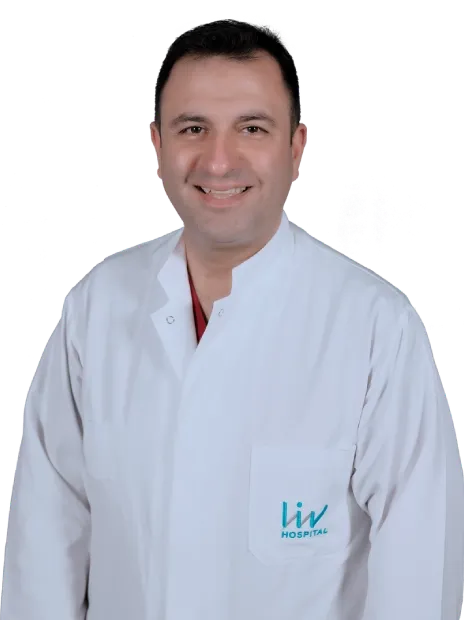
What is a personalized approach to cancer treatment? Learn about the amazing, powerful methods of precision medicine tailored to the individual patient. Imagine a personalized treatment plan made just for you. It’s based on your unique genetic profile, molecular markers, and how your environment affects you. We’re seeing a big change in how we fight cancer, thanks to precision oncology and better diagnostics.
Precision medicine is changing how we stop, find, and treat cancer. By looking at your genes, proteins, and other details, we can make treatments that work better and cause fewer side effects.
Doctors use genetic and molecular tests to learn about your cancer. This lets us give you personalized care that really makes a difference in your treatment.
Key Takeaways
- Precision oncology tailors therapies to individual patients based on their unique genetic and molecular profiles.
- Advanced diagnostics enable healthcare providers to develop targeted treatment plans.
- Personalized cancer treatment improves treatment outcomes and reduces side effects.
- Genetic and molecular profiling help identify the unique characteristics of each patient’s cancer.
- Targeted treatment plans are more effective and have fewer side effects.
Understanding Precision Medicine in Cancer Care
Today, we’re in a new era of cancer care thanks to precision medicine. It focuses on each patient’s unique cancer traits. This method has changed the game by giving us a deeper look into what makes tumors grow.
The Evolution from Traditional to Personalized Cancer Treatment
Old cancer treatments were often the same for everyone, based on where the tumor was. But precision medicine has changed that. Now, treatments are made just for you, based on your genes and molecules. Studies with over 78,000 patients have found certain genetic changes that really affect how well treatments work for more than 20 types of cancer.
Key Principles of Precision Oncology
Precision oncology is all about making treatments that fit each person. Biomarkers are key here. There are signs in the body that tell us a lot about a tumor. They help us guess how a tumor will grow and react to certain treatments.
- Identifying genetic mutations that drive tumor growth
- Using biomarkers to predict treatment response
- Developing targeted therapies that exploit specific molecular vulnerabilities
The Role of Genetic and Molecular Profiling
Genetic and molecular profiling are at the core of precision oncology. By looking at a tumor’s genes, doctors can find specific mutations and biomarkers. This helps them decide the best treatment. Next-generation sequencing (NGS) is a big help here, letting us quickly check lots of genetic data.
This info lets us make targeted cancer therapies that work better and have fewer side effects. As we learn more about cancer’s genetics and molecules, precision medicine will keep leading the way in cancer care. It brings new hope to patients all over the world.
5 Essential Components of a Personalized Approach to Cancer Treatment
A personalized approach to cancer treatment is changing how we fight this disease. It tailors treatment to each person, improving results. Let’s look at the five key parts of a personalized cancer treatment plan.
Comprehensive Genomic Profiling
Comprehensive genomic profiling is the basis of personalized cancer treatment. It analyzes a tumor’s DNA to find genetic mutations that cause cancer. Next-generation sequencing (NGS) helps quickly find these mutations, leading to more precise treatments.
NGS shows that each cancer is unique, with its own genetic changes. Knowing these changes helps us create treatments that fit each person’s needs.

Targeted Therapy Selection
After finding the cancer’s genetic mutations, we choose targeted therapies. Targeted therapies are effective against certain cancers, with fewer side effects than traditional chemotherapy.
- Identify a specific genetic mutation.s
- Select targeted therapies based on those mutations
- Monitor patient response to treatment
Immunotherapy Customization
Immunotherapy uses the immune system to fight cancer. Neoantigen-based vaccines are a key part of immunotherapy. They create vaccines that target a patient’s specific cancer.
“The development of neoantigen-based vaccines represents a significant advancement in the field of cancer immunotherapy, bringing new hope for patients with previously untreatable cancers.”
Personalized Treatment Monitoring
Personalized treatment monitoring tracks a patient’s response to treatment. It adjusts the plan as needed. Advanced imaging, like PET scans, helps monitor tumor response.
The Pathway Ensemble Tool (PET) helps scientists find key cancer pathways. It shows if a cancer is likely to grow fast or slow.
By combining these four parts “ genomic profiling, targeted therapy, immunotherapy, and monitoring “ we create detailed treatment plans. These plans meet each patient’s unique needs, leading to better results.
Evidence of Effectiveness in Personalized Cancer Care
More and more evidence shows that personalized cancer care works. Studies prove that precision oncology helps patients with many types of cancer.
Improved Survival Rates Across 20+ Cancer Types
Research has found certain genetic mutations that greatly affect treatment results for over 20 cancers. This lets doctors use treatments that are more likely to work. It has led to better survival rates and fewer cases of cancer coming back.
Key findings include:
- Enhanced treatment efficacy due to targeted therapies
- Better patient stratification based on genetic profiling
- Improved overall survival rates across multiple cancer types
Reduction in Side Effects with Tailored Treatments
Personalized cancer treatment also cuts down on side effects. By making treatments fit each patient, doctors can lower the chance of bad reactions. This makes life better for patients going through cancer treatment.
The benefits of reduced side effects include:
- Less toxicity due to targeted therapies
- Improved patient compliance with treatment regimens
- Enhanced overall well-being during and after treatment
Case Studies: Successful Implementation of Precision Oncology
Many case studies show how precision oncology works in real life. They show how making treatment plans for each patient can greatly improve results.
“The integration of precision oncology into our treatment protocols has revolutionized our approach to cancer care, allowing us to provide more effective and personalized treatment options for our patients.”
Continuing to work on precision oncology, we can make cancer treatment even better. This will help improve the lives of patients all over the world.
Challenges and Future Directions in Precision Oncology
As precision oncology grows, it faces many challenges. These include unequal access to advanced tests and treatments. This limits how fully it can be used.
Overcoming Access and Implementation Barriers
Ensuring everyone can get new treatments is a big challenge. Disparities in healthcare and insurance make it hard for some to access these treatments. We work to change this by pushing for better access to precision oncology.
Also, understanding complex genomic data needs specialized knowledge. We provide ongoing education for our team. This ensures they can make the best treatment choices.
Emerging Technologies in Personalized Cancer Treatment
The future of precision oncology depends on new technologies. Genomic sequencing, immunotherapy, and liquid biopsy are key. We keep up with these advancements and use them in our treatments.
- Liquid biopsy for non-invasive monitoring of tumor dynamics
- Artificial intelligence to enhance genomic data analysis
- Novel immunotherapies targeting specific tumor mutations
LIVHospital’s Approach to Implementing Advanced Protocols
At LIVHospital, we focus on the latest in precision oncology. Our team of experts works together to create personalized plans. We use advanced technology to analyze data and find the best treatments.
We’re always looking to improve by joining clinical trials and studies. By keeping our protocols up to date, we aim to give our patients the best care.

Conclusion: The Transformative Impact of Personalized Cancer Treatment
Personalized cancer treatment is changing how we fight cancer. It tailors treatments to each patient’s unique needs. This approach uses a patient’s genetic and molecular makeup.
The Human Genome Project has been key in this area. It helps find the genetic changes that lead to cancer. This knowledge helps doctors create better treatments.
This new way of treating cancer is making a big difference. Patients are living better and longer. They experience fewer side effects because treatments are more precise.
For more on this progress, check out studies at the National Center for Biotechnology Information.
We’re working hard to make personalized cancer treatment available to everyone. New technologies will make it even better. Our goal is to provide top-notch care to patients from around the world.
FAQ
What is precision oncology, and how does it differ from traditional cancer treatment?
Precision oncology is a new way to fight cancer. It uses genetic and molecular profiling to make treatments fit each patient. This approach is different from traditional treatments, which often don’t consider each patient’s unique needs.
How does genetic and molecular profiling guide treatment decisions in precision oncology?
Genetic and molecular profiling find specific genetic mutations and biomarkers in tumors. This helps doctors create targeted treatments that are more effective and have fewer side effects.
What are the essential components of a personalized approach to cancer treatment?
Key parts include genetic profiling, choosing the right therapy, customizing immunotherapy, and monitoring treatment. These elements work together to create effective, tailored plans for each patient.
What are the benefits of personalized cancer care, and is there evidence to support its effectiveness?
Personalized cancer care can lead to better survival rates and fewer side effects. Many studies show it works well. Success stories also highlight their benefits.
What are the challenges facing precision oncology, and how are they being addressed?
Precision oncology faces issues like unequal access to testing and treatment. But new technologies and approaches are being developed to solve these problems. LIVHospital is working to improve patient outcomes with advanced protocols.
How does next-generation sequencing contribute to precision oncology?
Next-generation sequencing is a key tool in precision oncology. It allows for detailed genetic profiling and identifies mutations that drive tumor growth. This information helps doctors make targeted treatment decisions.
What is the role of biomarker-guided treatment in precision oncology?
Biomarker-guided treatment is vital in precision oncology. It lets doctors tailor treatments to each patient’s needs. This approach improves outcomes and reduces side effects.
How does precision oncology improve patient outcomes and quality of life?
Precision oncology tailors therapies to individual patients. This can revolutionize cancer care, leading to better outcomes and a better quality of life.
What is the significance of neoantigen-based vaccines in personalized cancer treatment?
Neoantigen-based vaccines are a promising area in personalized cancer treatment. They target specific mutations in cancer, helping to control tumor growth by stimulating the immune system.
How does LIVHospital implement advanced protocols in precision oncology?
LIVHospital is dedicated to delivering top-notch healthcare. It supports international patients and uses advanced protocols in precision oncology to enhance patient outcomes.
References
- Pal, R. S., Saxena, Pal, R., Wahlang, J., Pal, Y., Chaitanya, M., & Saxena, S. (2025). Precision oncology: transforming cancer care through personalized medicine. Medical Oncology, 42(7), 246.https://pubmed.ncbi.nlm.nih.gov/40488843/
- He, W., et al. (2025). Personalized cancer treatment strategies incorporating cellular heterogeneity, genetic evolutionary dynamics, and non-genetic plasticity. Nature Communications, 16, Article 547.https://www.nature.com/articles/s41540-025-00547-5
- Singh, D., Khosla, A., & Saini, S. (2024). Personalized medicine: An alternative for cancer treatment. Drug Discovery Today, 29(4), 101542.https://www.sciencedirect.com/science/article/pii/S2468294224000728



































